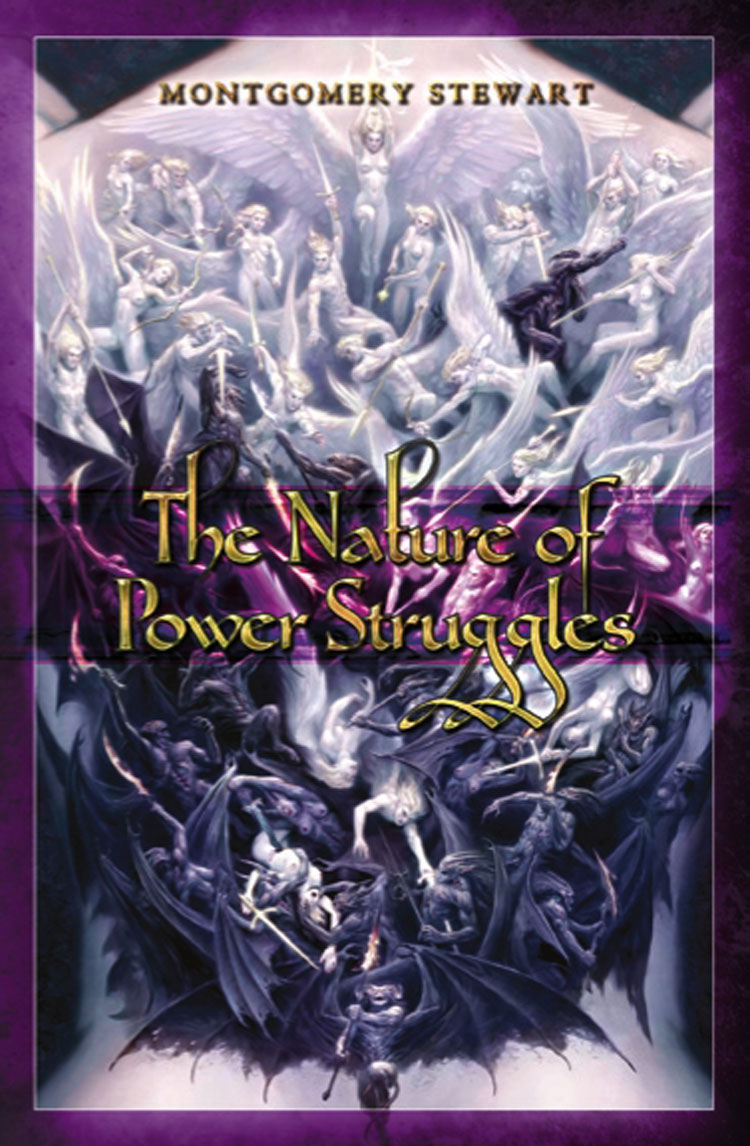Description
The Nature of Power Struggles
Daring, astute, and smart, The Nature of Power Struggles, is a powerfully revealing work of nonfiction. Author Montgomery Stewart examines our search for self and relationship and how it is often frustrated by competing beliefs, differing models of behavior, and our mixed motivations caused by fear and love. Stewart reveals the fragile nature of alliances that we create with others, along with the constant quest for fairness in our relationships in order to better understand this struggle. Within this framework, we are constantly dealing with how we all use our power to force, manipulate, and persuade others into action, and as a result, most individuals today are actively engaged in a struggle for power. This modern behavior by individuals and institutions drives how people commonly treat one another in various situations. With benchmark research and relevant case studies that highlight human dynamics in business, personal relationships, and cultural and religious expression, this rewarding exposé shows how persons and groups historically struggle to get their footing in order to inevitably manipulate the system to get what they want. In twenty-four easy-to-read chapters with titles like “The Subjective Nature of Fairness,” “Love, Respect, and Fear,” and “Moving between Social and Economic Classes,” the author illustrates the reasons why Americans continue to struggle in their pursuit of life, liberty, and happiness and the factors that contribute to this struggle. Stewart makes great strides in explaining how people operate and navigates their world. Ultimately sparking meaningful dialogue about the elements of conflict, this text also examines the brick wall many Americans face when it comes to exercising their rights so that they might accept what is fueled by human nature and what it is they can control.

The Nature of Power Struggles by Montgomery Stewart is for those readers who wish to:
- 🔹Examine various forms of power
- 🔹Explore the fragile nature of alliances
- 🔹Recognize the subjective nature of fairness
- 🔹Understand how we emulate three primary models of behavior
- 🔹Comprehend how beliefs are in competition with each other
- 🔹Discern how information is always filtered through our beliefs
This text reveals how to recognize what drives others as individuals and en masse. While Stewart’s book is more descriptive than prescriptive, he discloses the path we must take if we wish to learn to resolve these issues and accept the fact that some issues are irreconcilable. By addressing a number of instances of ironic behavior and attitudes in our society, Stewart reveals how to manage the people in your life, how to discern what’s possible in a given situation, and how to accept what is not possible.
ForeWord Clarion Review
SELF-HELP
The Nature of Power Struggles
Montgomery Stewart
BookSurge Publishing
978-1439-275504
Four Stars (out of Five)
Most people face power struggles during their lives, whether in relationships, friendships, or the workplace. Depending on the experience and outcome of the struggle, it can turn out to be a victory, a defeat, a compromise, or even a life-changing event.
In The Nature of Power Struggles, a comprehensive and ambitious book, Montgomery Stewart casts a very wide net. He addresses power struggles in the context of person-to-person relationships, the battle of the sexes, and societal issues (including racial, cultural, and group prejudice). He also talks about power struggles within the United States and elsewhere.
Stewart begins with a general discussion of power struggles and what he describes as “forms of power,” in which he notes the differences between force, manipulation,guilt, victimization, and persuasion. Stewart concludes that “the less sophisticated and knowledgeable a person is, the more likely he or she is to use force . . . By contrast, the more sophisticated and knowledgeable individuals tend to use manipulation and persuasion whenever possible.”
Stewart then explores three “models of behavior”—war, games, and social engineering. He explains the attributes of each and makes the point that individuals and groups who operate using different models of behavior are rarely able to reconcile their differences. The author goes on to cover various aspects of power struggles, including alliances, control, opposition, and disassociation. A particularly intriguing chapter in the book is entitled “The Subjective Nature of Fairness.” Stewart says he has seen similar power struggles in diverse industries “over money, control, authority, position, status, ownership, and recognition.” The problem in all of these struggles, he writes, is the definition of “fair.” Fair, argues Stewart, “is an easy concept to discuss and a difficult one to implement.”
Stewart’s concluding chapter is perhaps his most insightful. “One reason we struggle for power,” writes the author, “is due to the system of beliefs that we have inherited in this country.” In explaining his theory, Stewart says our society relies largely on “the war model in making decisions.” He further states, “Although many profess and speak of the need to act from a place of love, most human beings are more responsive to and act out of fear.”
Cartoons call attention to some of Stewart’s main points in The Nature of Power Struggles. However, the reader may find the cover and interior illustrations, which depict angels and devils doing battle, a bit inappropriate for the subject matter. Stewart can be redundant at times, but, on the whole, he’s produced a well-written, expansive work that will provoke serious thought about life’s power struggles.
-Barry Silverstein




Reviews
There are no reviews yet.